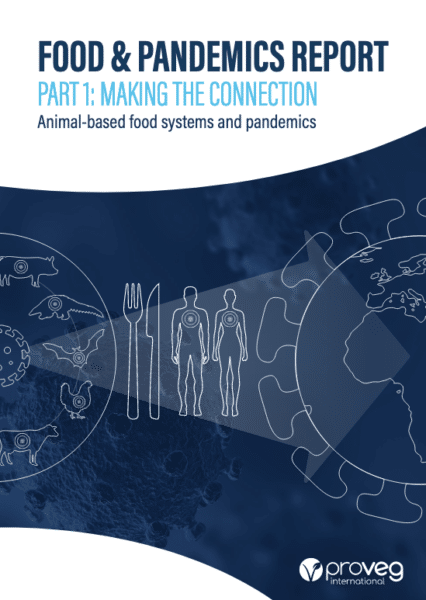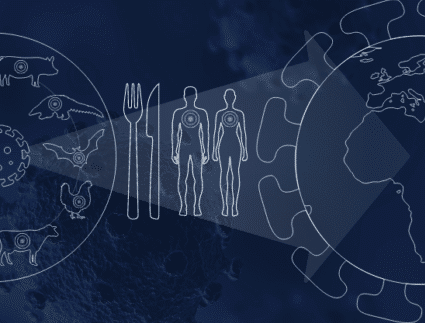A report by ProVeg International has highlighted ‘a fundamental and often-overlooked’ link between pandemics and the existing animal-based food system.
According to the Food & Pandemics Report, the consumption and farming of livestock is the single most risky human behaviour when it comes to pandemics.
Calling for urgent action to avoid future outbreaks like the current COVID-19 pandemic, it outlines how our dietary choices and our current food system are responsible for diseases transmitted from animals to humans (zoonoses) in three ways: through the destruction of animals’ natural habitats and loss of biodiversity, driven largely by animal agriculture; through the use of wild animals as food; and through the use of farmed animals as food in intensified animal agriculture.
The recipe for disaster is surprisingly simple: one animal, one mutation, one human, and a single point of contact

It states that 75% of all emerging infectious diseases are zoonotic – including SARS, MERS, Ebola, rabies, and certain forms of flu – causing approximately 2.5 billion cases of illness and 2.7 million deaths globally each year.
“The recipe for disaster is surprisingly simple: one animal, one mutation, one human, and a single point of contact,” explains Jens Tuider, international director of ProVeg International, and lead author of the report. “We don’t yet know the full story about the emergence of COVID-19, but there is no uncertainty regarding swine flu and avian flu: those viruses evolved on factory farms, where conditions are perfect for the evolution and transmission of viruses, as well as for the development of antimicrobial resistance. Factory farms are perfect breeding grounds for future pandemics.
“There are so many reasons to move away from intensively farming animals – to tackle the climate crisis, to protect the environment, to combat antibiotic resistance, to protect our health, and for the welfare of animals. But mitigating the risk of the next pandemic, which could have an even more devastating impact than COVID-19, is perhaps the most persuasive reason of all. Science clearly supports this, but is there enough political will?”
Commenting on the report, Dr Musonda Mumba, chief of the terrestrial ecosystems unit of the UN Environment Programme, says: “The ProVeg report clearly demonstrates the connection between industrial animal production and the increased risk of pandemics. Never before have so many opportunities existed for pathogens to jump from wild and domestic animals to people.”











